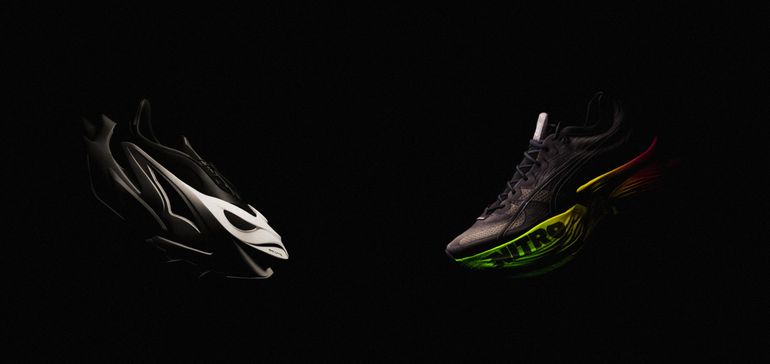First published on
Puma is the latest brand in the retail fashion space to embrace the metaverse and related technologies. The Black Station experience links digital design to physical products via an NFT, showcasing a way that brands can use the tech to engage with consumers and enrich their experiences, as has been done by the likes of Prada and American Eagle. Its name revives a brand concept that revolved around high-end fashion.
“Given the boundaries we are pushing from a product design and digital standpoint, we found it fitting to bring Black Station back as a new portal for digital exploration across fashion, sport performance, our heritage classics, and innovation,” said Adam Petrick, Puma’s chief brand officer, in the press release.
In addition to giving real-world value to Puma’s recent NFT release, Black Station allows the brand to extend the reach of NYFW beyond its physical location. The metaverse allows for a bridging of physical and digital spaces and has quickly become a popular way for marketers to activate around large-scale cultural events like NYFW. Similarly, brands including Tommy Hilfiger and DKNY in March participated in Metaverse Fashion Week.
Black Station was designed by creative ventures firm FTR and is built with Unreal Engine 5. Created by developer Epic Games, Unreal is a 3D creation tool that is used across games, film, architecture, fashion, automotive, music and live events, as well as Fortnite. The engine has been a popular tech for brands activating in the metaverse, and is at the heart of a collaboration between Epic Games and WPP.
The metaverse is expected to be worth $5 trillion by 2030, per a McKinsey report, making it a shiny penny during the last year for marketers of all stripes, but especially those in retail and fashion. In May, Gap launched a virtual, purchase-free experience in Club Roblox, while Gucci opened a persistent digital space on the platform. Such experiences seek to engage the younger consumers who have popularized such digital platforms but are more difficult to reach through traditional ad channels.
Get the free daily newsletter read by industry experts
Topics covered: retail tech, e-commerce, in-store operations, marketing, and more.
As the traditional mall declines, a lot is riding on how well the department store can execute its small-format, strip-center strategy. And whether it should.
Photo Illustration: Arturo Holmes/Getty Images; Industry Dive
Telfar, Marc Jacobs and Tommy Hilfiger are taking a unique approach to retail. Their creative decisions may soon be the way everyone wants to do business.
Subscribe to Retail Dive for top news, trends & analysis
Topics covered: retail tech, e-commerce, in-store operations, marketing, and more.
Get the free daily newsletter read by industry experts
Topics covered: retail tech, e-commerce, in-store operations, marketing, and more.
With Target taking the vocal lead, retailers are flushing out excess inventory to reset for the holidays. How much they’ll sell then is anybody’s guess.
The rollout of companies voicing support for abortion access continues, with brands like J. Crew, Sephora and Adore Me making public statements.
The free newsletter covering the top industry headlines
Topics covered: retail tech, e-commerce, in-store operations, marketing, and more.
Author
Administraroot


